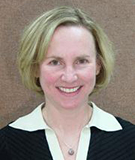A view of space from space
adrianaWSU professor shows Hubble Space Telescope’s greatest images, details history
About 50 people tilted their heads back, gazed up at the Washington State University Planetarium dome and took in images from space Sunday at Sloan Hall on the WSU campus in Pullman.
Long before Sunday’s sunset, viewers sat in the dark room looking up at sharply-focused images of planets, stars and galaxies. One image showed a detailed shot of a purple ring at the top and bottom of Jupiter.

Guy Worthey, WSU associate professor in the Department of Physics and Astronomy, displayed the images taken from the Hubble Space Telescope.
Worthey discussed the history of the telescope, named after the late American astronomer Edwin Hubble, and how it revolutionized astronomy.
He said American physicist Lyman Spitzer developed the idea in 1946 of a telescope beyond the atmosphere rather than on the ground, as turbulence and air currents make telescope views from the ground blurry.
“If you were to go above the atmosphere, you could defeat that completely,” Worthey said.



